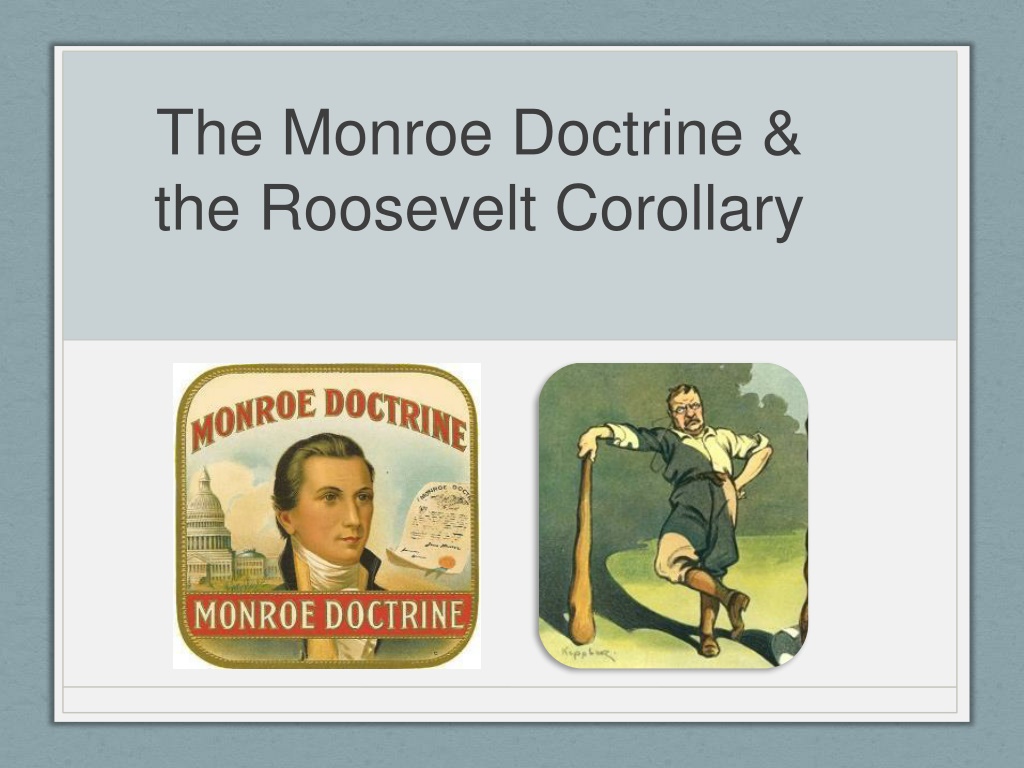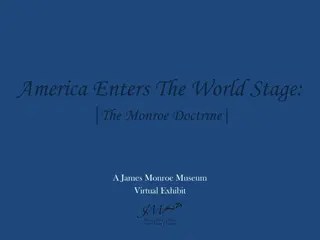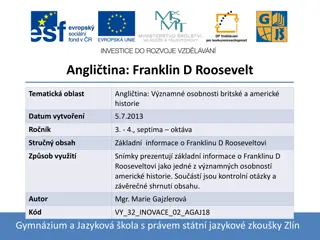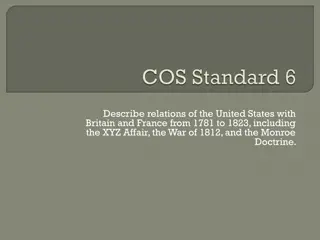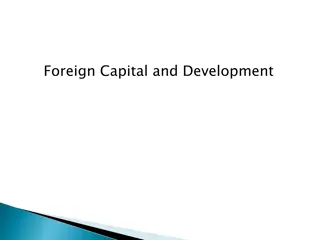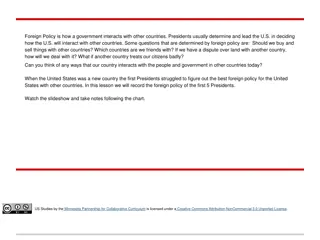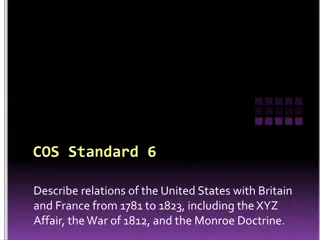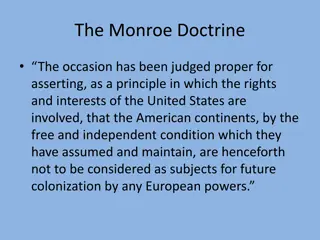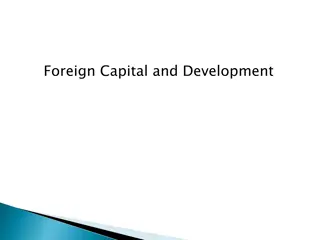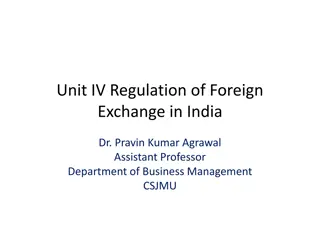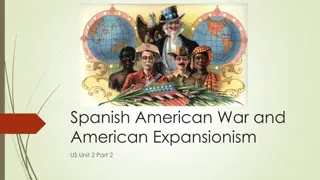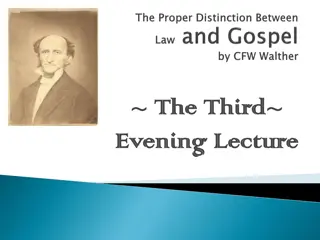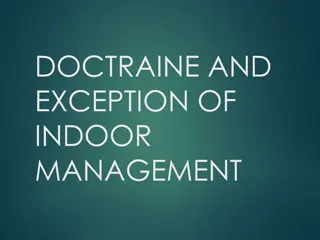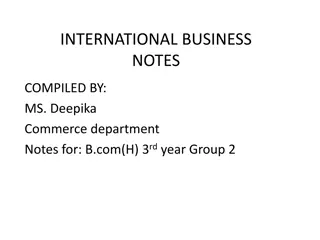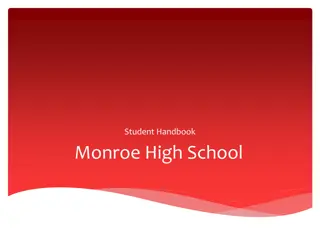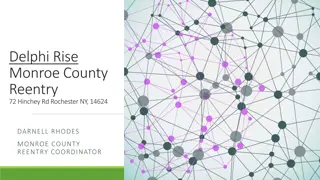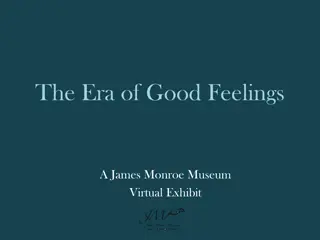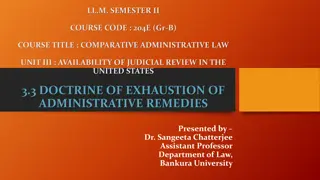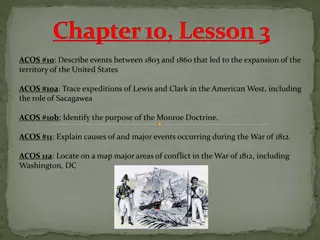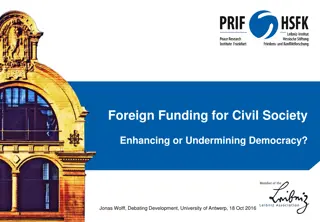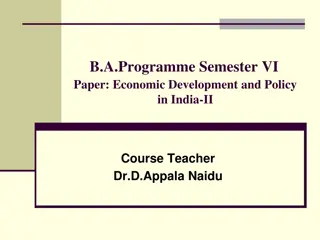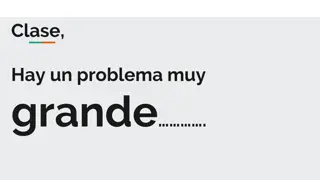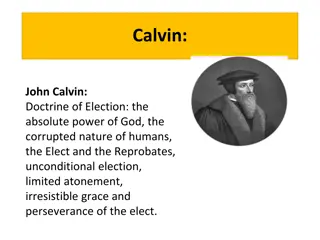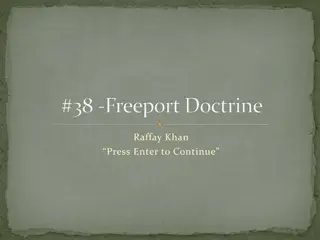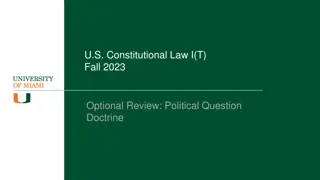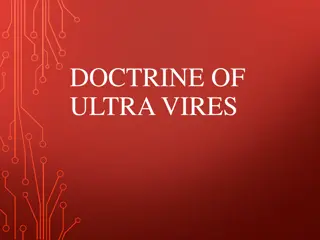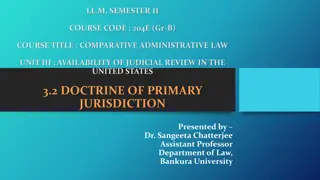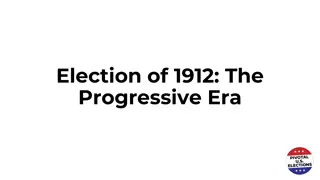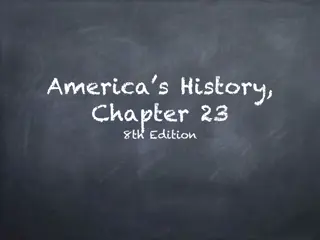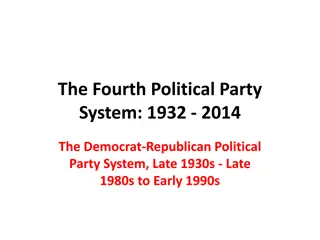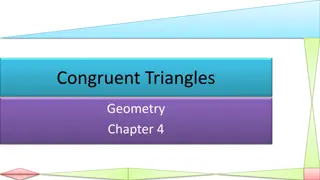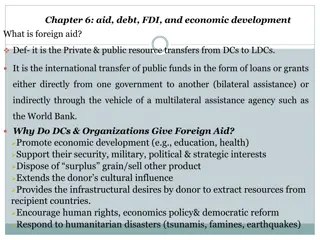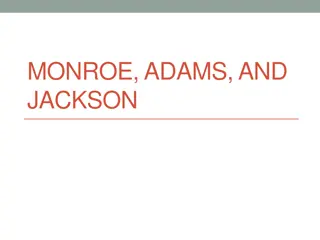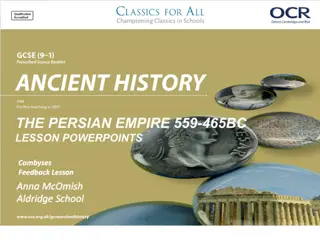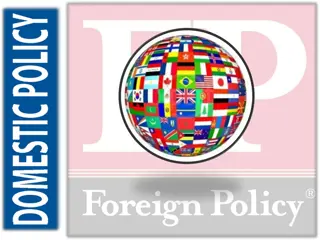The Monroe Doctrine and the Roosevelt Corollary: Evolution of US Foreign Policy
The content explores the historical context and evolution of US foreign policy through the Monroe Doctrine of 1823 and the Roosevelt Corollary of 1904. It discusses the principles outlined in each doctrine, their implications on US interactions with other nations in the Western Hemisphere, and the shift in approach towards intervention and stability. The text provides insights into how these doctrines shaped US foreign relations and influenced diplomatic strategies during different time periods.
Uploaded on Sep 28, 2024 | 0 Views
Download Presentation

Please find below an Image/Link to download the presentation.
The content on the website is provided AS IS for your information and personal use only. It may not be sold, licensed, or shared on other websites without obtaining consent from the author. Download presentation by click this link. If you encounter any issues during the download, it is possible that the publisher has removed the file from their server.
E N D
Presentation Transcript
The Monroe Doctrine & the Roosevelt Corollary
1. Whats happening in the cartoon? 2. What words and symbols do you see? 3. What meaning can you make in connection to the Monroe Doctrine of 1823? 4. Fast forward to Roosevelt ~1900. New meaning? What s changed?
Excerpt from Corollary to the Monroe Doctrine Excerpt from Corollary to the Monroe Doctrine Theodore Roosevelt December 6, 1904 Before Congress It is not true that the United States feels any land hunger or entertains any projects as regards the other nations of the Western Hemisphere save such as are for their welfare. All that this country desires is to see the neighboring countries stable, orderly, and prosperous. Any country whose people conduct themselves well can count upon our hearty friendship. If a nation shows that it knows how to act with reasonable efficiency and decency in social and political matters, if it keeps order and pays its obligations, it need fear no interference from the United States. Chronic wrongdoing, or an impotence which results in a general loosening of the ties of civilized society, may in America, as elsewhere, ultimately require intervention by some civilized nation, and in the Western Hemisphere the adherence of the United States to the Monroe Doctrine may force the United States, however reluctantly, in flagrant cases of such wrongdoing or impotence, to the exercise of an international police power.
1 1st stReading: Reading: Individually annotate text and add Cs & Qs 2 2nd ndReading: Reading: Essential Questions What does Roosevelt claim in the first two sentences is the United States desire for other nations in the Western Hemisphere? 1. With whom will the U.S. be allies/friends? 2. Why would the U.S. intervene in another nation s affairs? 3. Who do you think this message was primarily for? 4. What do you think was the impact of this corollary on U.S. foreign policy? 5.
